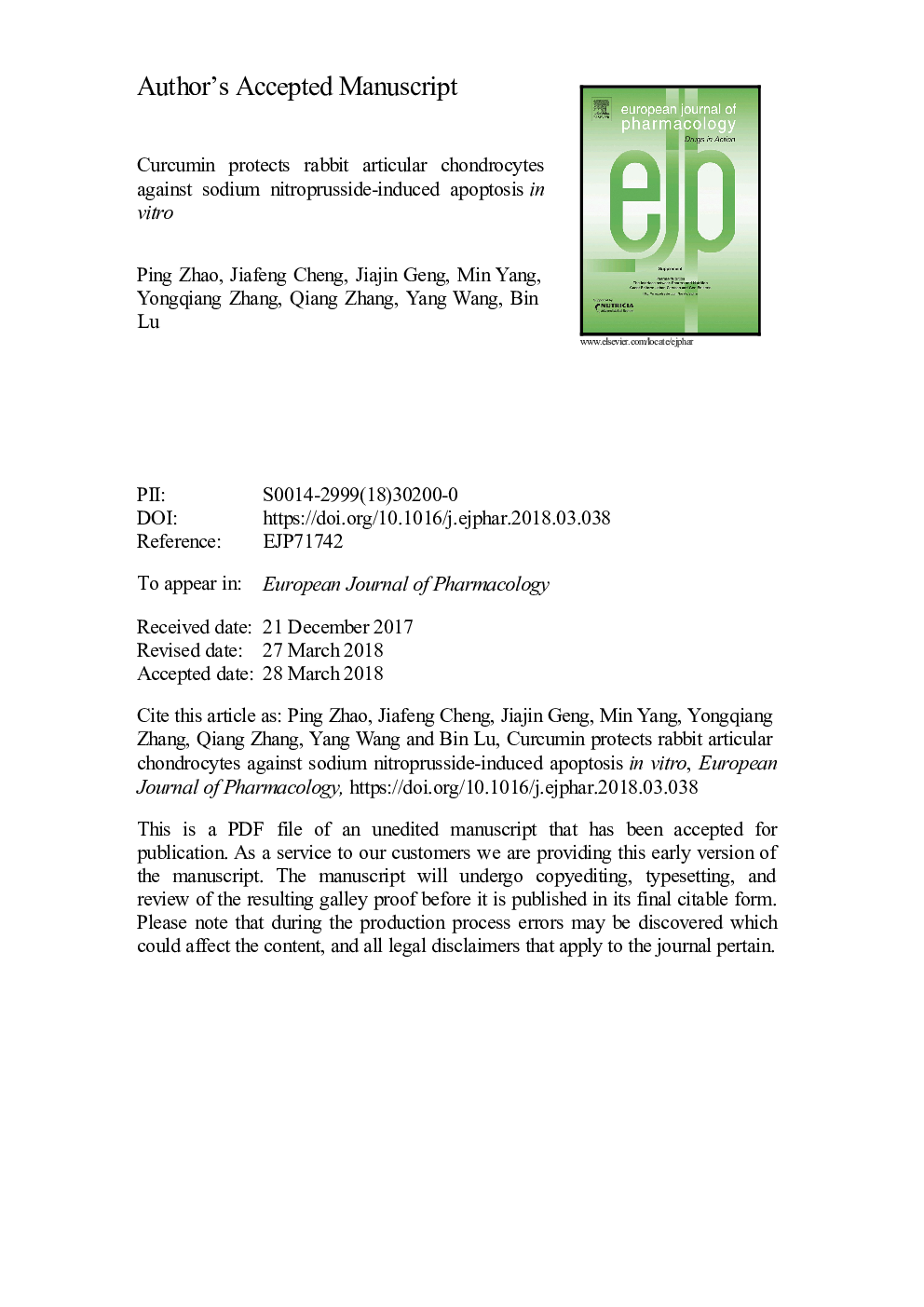| Article ID | Journal | Published Year | Pages | File Type |
|---|---|---|---|---|
| 8529072 | European Journal of Pharmacology | 2018 | 16 Pages |
Abstract
The preventive and therapeutic effects of curcumin on degeneration of articular (joint) cartilage diseases have rarely been investigated. In the present study, the protective effects of curcumin against sodium nitroprusside (SNP)-induced chondrocyte apoptosis were evaluated and the underlying molecular mechanisms were elucidated. Curcumin was used to as a co-treatment with SNP in chondrocytes, and changes occurring in the cells were observed and evaluated. It was shown using a cell counting kit-8 (CCK-8) assay that curcumin protected the viability of chondrocytes against SNP damage. NO (nitric oxide) from SNP could be scavenged by curcumin. Flow cytometry and Hoechst 33342 staining showed that curcumin not only inhibited the cell apoptosis in a concentration-dependent pattern but also ameliorated the SNP-induced nuclear chromatin damage and reduction of the mitochondrial membrane potential in chondrocytes. In SNP-treated chondrocytes, curcumin downregulated the expression of Bax and cleaved caspase-3 but upregulated the expression of Bcl-2, as shown by western blot. Meanwhile, curcumin administration also protected extracellular matrix (ECM) synthesis and prevented its degradation. Taken together, these results support the hypothesis that curcumin exerts its protective effect on chondrocytes against SNP-induced apoptosis, at least partly, via blocking the mitochondrial-dependent apoptotic pathway and maintaining the metabolic balance of ECM. Thus, curcumin may be a potential candidate to be used as a unique biological agent for the prevent and treatment of osteoarthritis (OA).
Related Topics
Life Sciences
Neuroscience
Cellular and Molecular Neuroscience
Authors
Ping Zhao, Jiafeng Cheng, Jiajin Geng, Min Yang, Yongqiang Zhang, Qiang Zhang, Yang Wang, Bin Lu,
